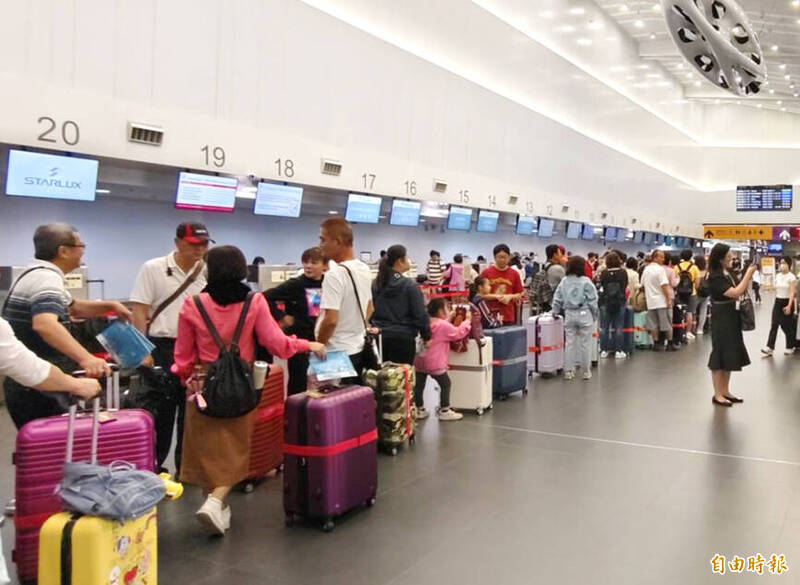Politics
Taiwanese Airlines Enforce New Rules on Bluetooth Earbuds and Chargers

Three Taiwanese airlines have implemented strict regulations regarding the transport of Bluetooth earbuds and their charger cases in checked luggage. EVA Air and Uni Air announced that these items fall under the category of portable electronic devices, which must be completely switched off when placed in checked luggage. This decision aligns with international aviation safety protocols.
New Regulations for Air Travel
According to the airlines, Bluetooth earbuds and their charging cases cannot remain in standby or sleep mode while in checked luggage. Since charging occurs when earbuds are in their cases, this practice violates international regulations. Consequently, passengers must carry these items in their hand luggage.
Tigerair Taiwan added that the charger cases are equipped with built-in lithium-ion batteries, similar to portable electric fans, which are also prohibited from checked luggage. In contrast, Starlux Airlines, China Airlines, and Mandarin Airlines do not have specific regulations for earbuds and their chargers. However, Starlux emphasized that all portable electronic devices must be switched off at all times during the flight if placed in checked luggage.
Guidelines for Ferry Passengers
In a related development, ferry passengers traveling between islets in Penghu County are also subject to new restrictions regarding portable chargers. Following an incident on the Nanhai Star 1 ferry, where a passenger’s charger ignited before departure, the Maritime and Port Bureau has banned the transport of portable chargers in checked luggage.
“We want to remind passengers that portable chargers must have certifications issued by the Bureau of Standards, Metrology and Inspection before boarding ferries,” the bureau stated.
The bureau further advised passengers to keep portable chargers in hand luggage and within sight at all times. Passengers are also cautioned against using chargers that are damaged, deformed, or overheating, as these conditions pose significant safety risks.
Airlines and ferry operators are actively working to ensure passenger safety through these new regulations. Travelers are encouraged to stay informed about the latest guidelines to avoid complications during their journeys.
-

 Lifestyle3 months ago
Lifestyle3 months agoHumanism Camp Engages 250 Youths in Summer Fest 2025
-

 Sports3 months ago
Sports3 months agoDe Minaur Triumphs at Washington Open After Thrilling Comeback
-

 Business4 months ago
Business4 months agoKenvue Dismisses CEO Thibaut Mongon as Strategic Review Advances
-

 Sports4 months ago
Sports4 months agoTupou and Daugunu Join First Nations Squad for Lions Clash
-

 Top Stories4 months ago
Top Stories4 months agoColombian Senator Miguel Uribe Shows Signs of Recovery After Attack
-

 World4 months ago
World4 months agoASEAN Gears Up for Historic Joint Meeting of Foreign and Economic Ministers
-

 Business4 months ago
Business4 months agoOil Prices Surge Following New EU Sanctions on Russia
-

 Health3 months ago
Health3 months agoNew Study Challenges Assumptions About Aging and Inflammation
-

 Entertainment3 months ago
Entertainment3 months agoDetaşe-Sabah Violin Ensemble Captivates at Gabala Music Festival
-

 Entertainment3 months ago
Entertainment3 months agoBaku Metro Extends Hours for Justin Timberlake Concert
-

 Business4 months ago
Business4 months agoU.S. House Approves Stablecoin Bill, Sends to Trump for Signature
-

 Top Stories4 months ago
Top Stories4 months agoRethinking Singapore’s F&B Regulations Amid Business Closures









